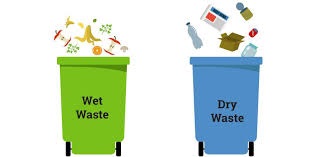If you segregate garbage and dispose of your own wet and dry waste, you can get a property tax waiver of up to 7 per cent. The BMC has cleared a proposal to give property tax rebates to all residential housing societies that segregate wet and dry waste.
Further rebates will be given if the societies dispose of their own dry waste to a local recycler and make compost out of the wet waste.
“I have cleared the proposal, and it will now be sent to the standing committee for approval. Once it is cleared by the standing committee, the tax rebate will come into force,” Municipal Commissioner Praveen Pardeshi told Mumbai Mirror. The rebate will, however, be applicable only to residential housing societies.
The move comes after the BMC had earlier this month decided to impose an additional charge on residents as ‘user fee’ for the collection, transportation and disposal of garbage generated in households. The civic administration had planned to table a proposal before civic group leaders to levy the user fee on residential and commercial establishments across the city every month in accordance with the national Solid Waste ManagementRules, 2016.
For instance, a household generating less than 100 kg of waste per month would need to pay approximately Rs 60 while a shop would have to pay Rs 90 for the same quantity of garbage.
According to BMC officials, the average waste generated per person per day is 450-650 gram.
The BMC had also imposed heavy fines of Rs 15,000 on bulk generators that didn’t segregate garbage. The bulk generators include housing societies as well as commercial establishments that produce over 100 kg of waste daily or have an area above 20,000 square metres. The bulk generators are already required to segregate waste and install waste processing units in their compounds.
According to the rebate proposal, the BMC will give housing societies 1 per cent rebate for segregation of waste. Three per cent for disposing of their dry waste to a local recycler and an additional 3 per cent if they make compost from the west waste. “If any housing society becomes zero garbage, which means that if they are not giving any garbage to the BMC then they can get 7 per cent rebate in property tax. This will work as an incentive for residents to segregate waste and also reduce the amount of waste the BMC is dumping at landfill sites,” said a senior civic official.
While green activists have welcomed the move, the Opposition said that the BMC must ensure that its coffers don’t run dry.
The BMC’s revenue sources have taken a hit in recent years with octroi, which was the highest source of revenue till 2017, being abolished and replaced with GST, and because of a drop in property tax revenue owing to the slump in the real estate sector.
“After octroi, property tax remains one of the BMC’s largest sources of revenue. Property tax rebate for residents who segregate waste isa welcome move but it must be implemented well. If proper care is not taken, then there is a chance that it might be misused. The BMC must first come out with a robust plan to implement this rebate,” said Ravi Raja, Congress corproator in the BMC.
Raje said that the MC is just making announcements but not able to sustain any plans. “There is still not clarity on the property tax waiver for all homes below 500 sq ft. That was an election slogan, now this tax rebate must not turn into another false election promise,” Raja said.
Officials said that property tax was now the biggest source for revenue for the BMC and especially after the octroi was subsumed by GST. The property tax collection target for 2018-19 was Rs 5,206 crore. The BMC had a property tax system in which tax was calculated on the basis of rateable value (rental value). In 2012, the new capital value (actual property value) property tax system was implemented with effect from 2010. Property tax is charged on the basis of several factors, including carpet area, location, nature and type of building, and occupancy type among other factors. “The rebate will be given twice a year, when we generate our property tax bills. Residents or housing societies will have to approach the Solid Waste Management (SWM) department to get a zero waste certification or a segregation certification as the case may be. After that is processed, the property tax will be rebated,” the official said.

